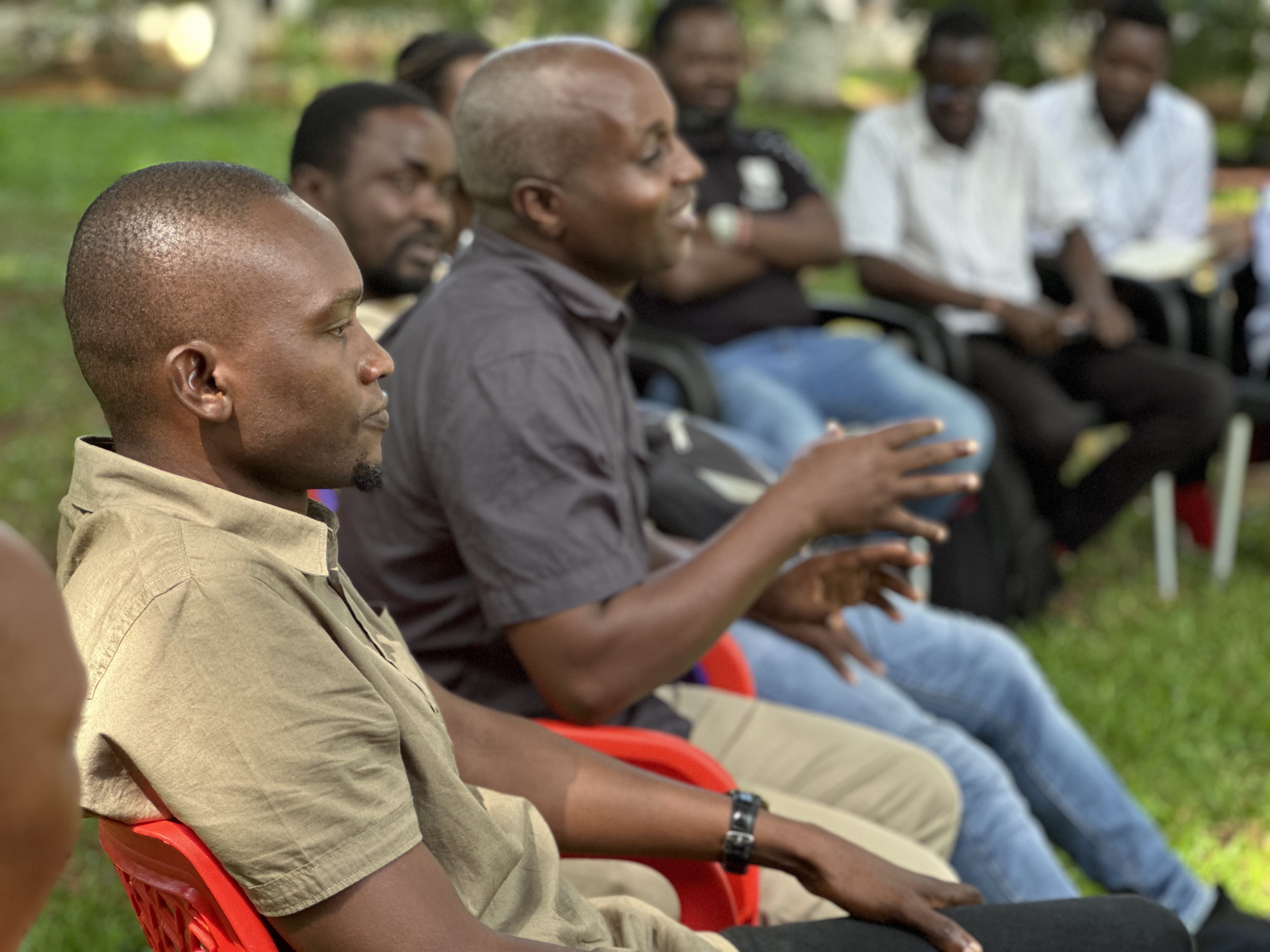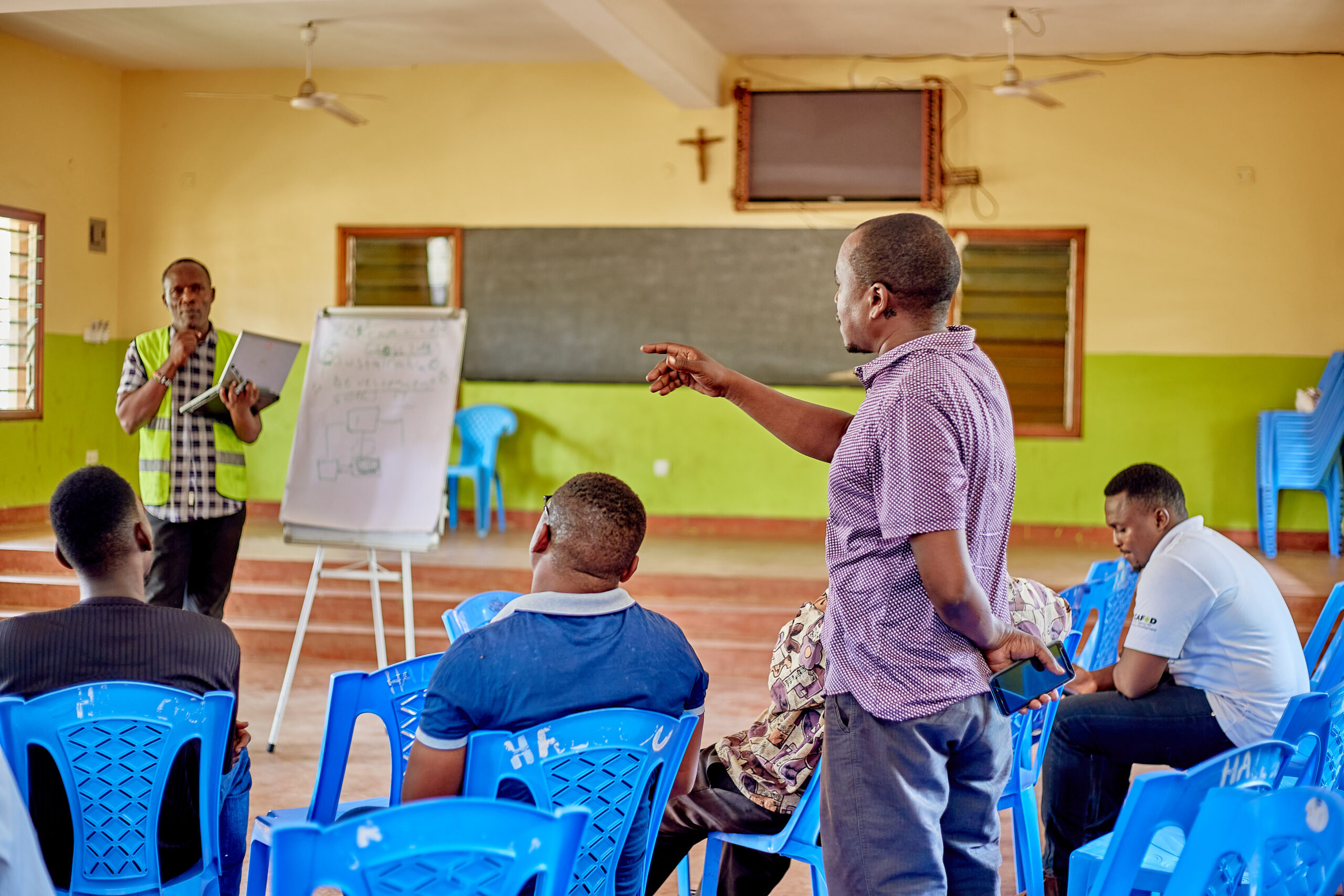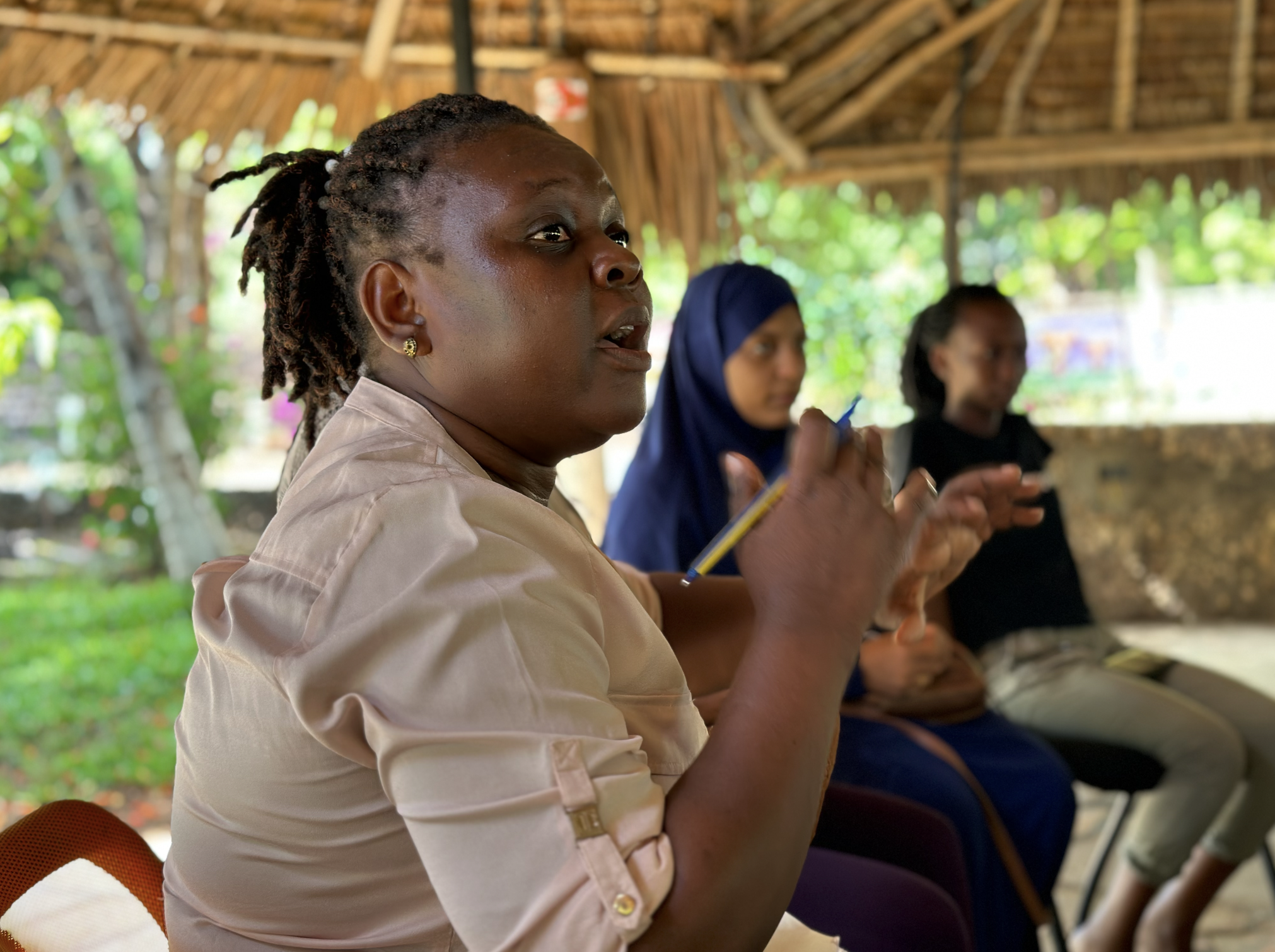
Rehema – The Brains Behind The Biggest CBO Activation in Malindi
My name is Rehema Iha and I work with Kwacha Afrika. At Kwacha, our programs cover the following areas – Peace and Security, Governance, Health, Gender, Persons Living with Disabilities, Theatre, Land and Environment.
In one of our stakeholders meeting under our Governance Program, the Sub-County ward administrator present told us that there was a planned public participation meeting to discuss the Annual Development Plan (ADP) for the County. He said that the document was not available in print copy for people to analyse because the County did not have budgets to print. I was shocked! How could they say this yet they had planned to have a public participation meeting with citizens about this very document? What would the citizens be discussing in the meeting they have not prepared for?
The following day, I attended a Nolewa session at Maono, the place where all of us CBOs meet for meetings, training and just to work. Nolewa is sharpen in Swahili, and it is a session where we share knowledge with each other from our areas of expertise. In this one, Thellesi Trust was taking us through why we should be on social media and how to tell good stories of our organisations. After the session, I brought up the issue I had experienced in my previous meeting about the ADP and the public participation meeting.
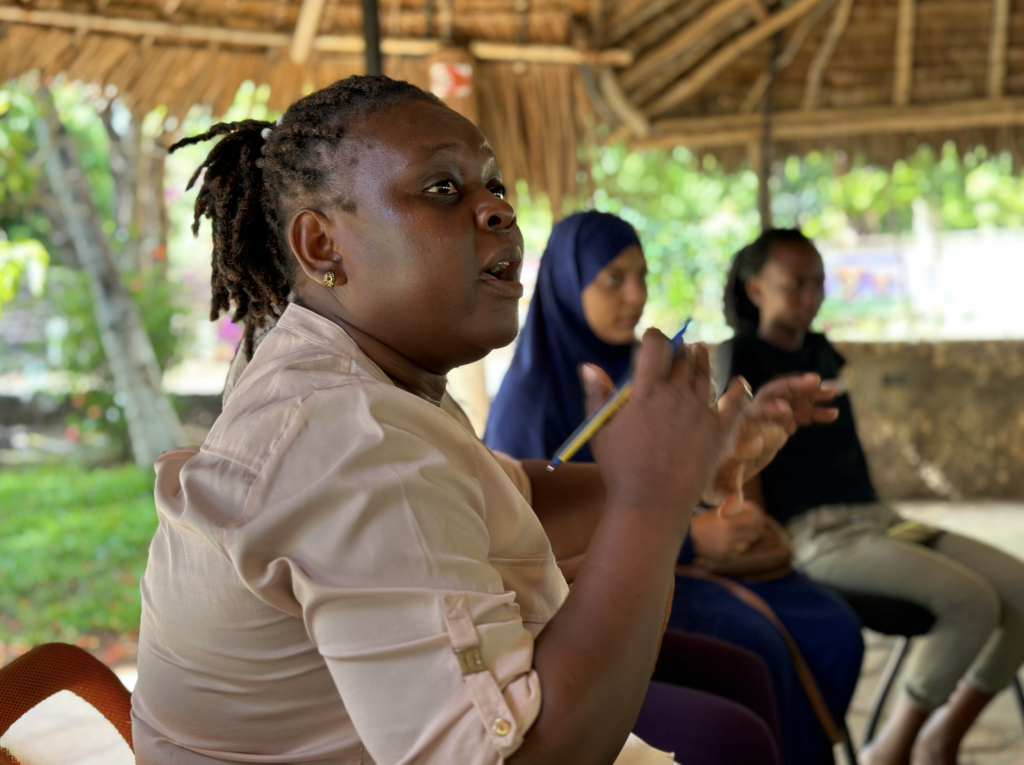
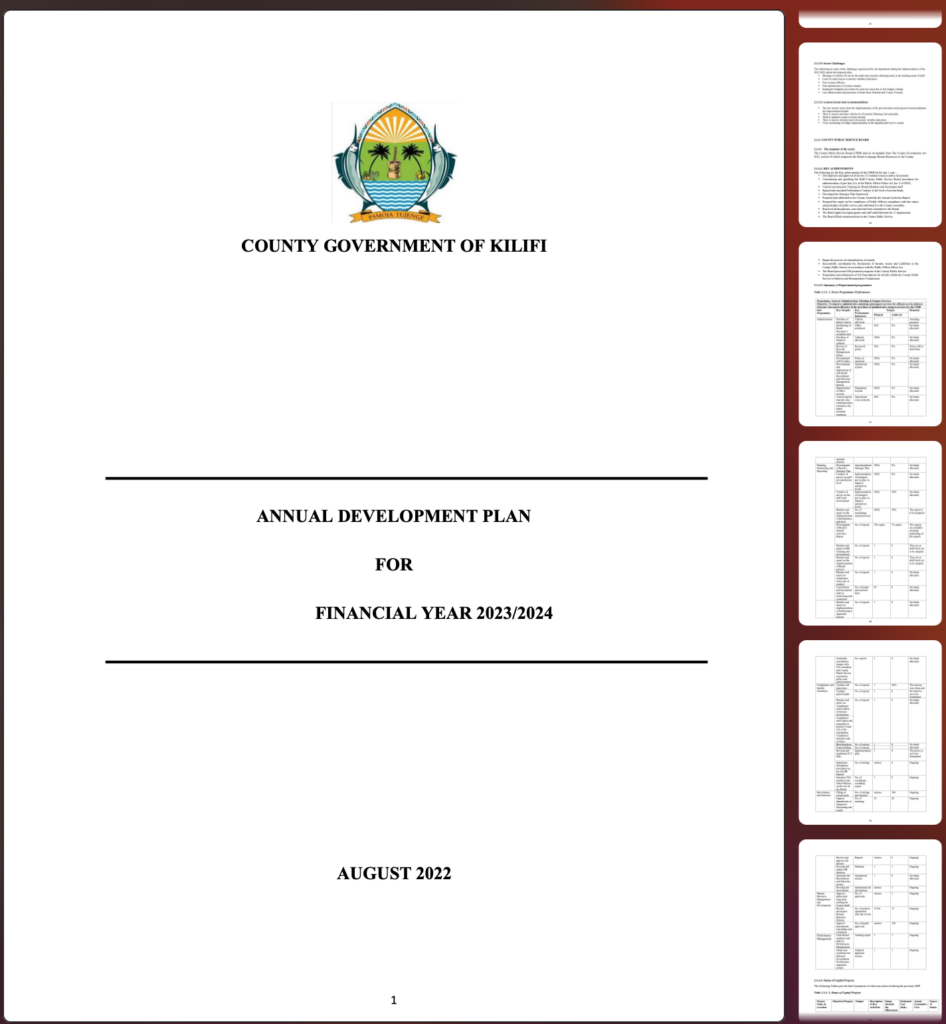
I told the group that the ADP was out but no one had seen it. Yet in 7 days time, there was to be a public participation meeting to discuss it. “People will not attend these meetings,” I told them, adding that “we should all do something about it because Civic empowerment affects all other programs – be it health, gender, youth etc.” The group agreed. We decided that our goal was to get people to understand what had been written in the ADP, and also to encourage them to attend the public participation meeting and share their comments on what projects they wanted included.
Meanwhile, one of our members found the ADP document on the County’s website. They downloaded it and shared to our WhatsApp group. I was shocked because, how was the common person supposed to find it? If I don’t have a smartphone (and many people in Kilifi don’t), how was I to know what the County had planned for me?
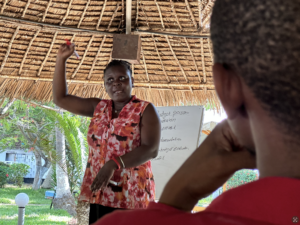
Rehema conducting civic education
When we started discussing how we would do this, we realised that some of us were not understanding what we were talking about. Not everyone does Civic Empowerment as their core theme. So we started with a civic education session where I took them through the budget process. They understood.
Because we had less time (less than 5 days and a weekend between) we decided that we would not cover all of Kilifi. We selected Malindi and Magarini Constituencies because they were close to us, and we felt that we would have had more impact. Both have a total of 11 wards. We assigned ourselves locations, each organisation to where they had more influence and ability to mobilise.
After this, we agree on the methods of mobilising. Some were to do town hall meetings, others magnet theatre and other social media. Each of the groups doing on-ground activities would carry a manila paper and a marker pen, with which they would help the community to list their priorities. The citizens would then use the manila papers in the public participation meetings to make discussions easier. The biggest thing for us to do before going to the field was reading the ADP and noting it’s points. It is a 500 page document written in English. We assigned that task to Thellesi Trust. By morning, they had shared with us a broken down version that had been translated into Swahili.
We only had 3 days to mobilise all the 11 wards. I am happy because Maono supported us to get means of transport and lunch which made the experience better. During the mobilisation with citizens, we used the broken down document to save citizens from reading the actual 500 page document. What we were saying was “this is what the County has prioritised for you, is it what you want?” Personally, I was mobilising Malindi Town and Shella Ward through town hall meetings.
We got a good number from Malindi town ward, but we struggled with Shella. At some point we found ourselves alone and the other group mobilising with me called Awakening wrote a nice mobilisation song that we started singing as we waited for people. In all the two locations, we listed down what the citizens told us on a manila paper, and then told them that April 18th was the day where their voices were needed the most because that’s was the day of the public participation meeting.
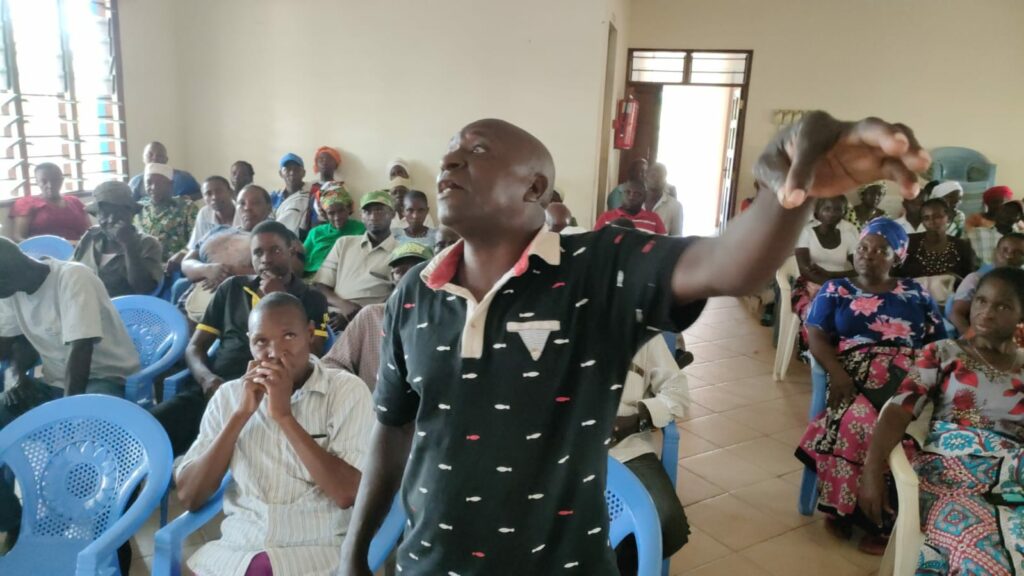
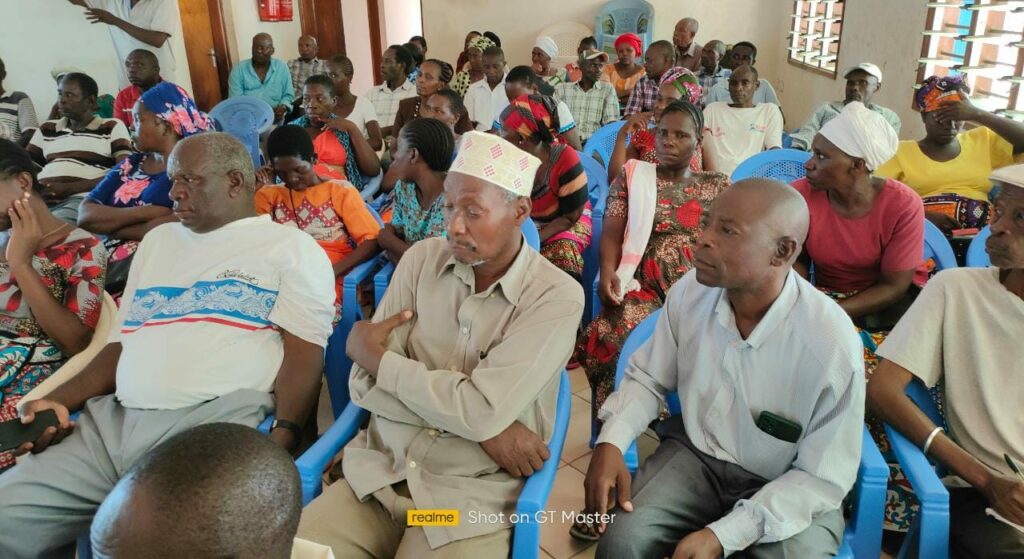
On the 18th, we all woke up and went to the public participation meetings to see how they were going and if people came. In Malindi Town, the turn out was impressive. In a later conversation with the Ward admin, he said this turn out was better than what he had seen in previous meetings. The people had stuck the manila papers on the wall in front of the hall for everyone to see. I noticed that after people had said what was on the manila paper and other points, they started leaving. Partly also because the facilitator was reading the ADP word for word, in English and people were not understanding and it was boring.
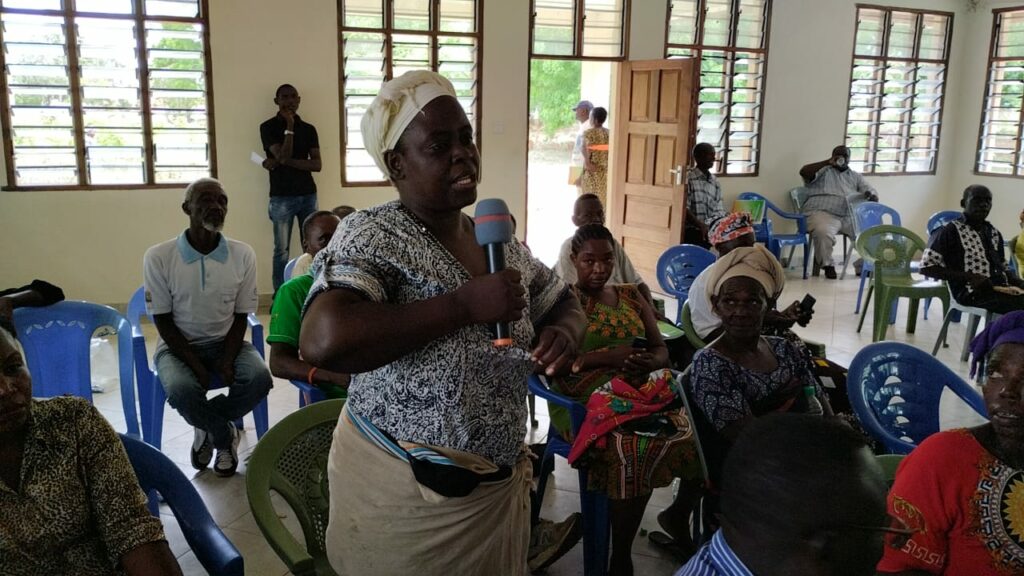
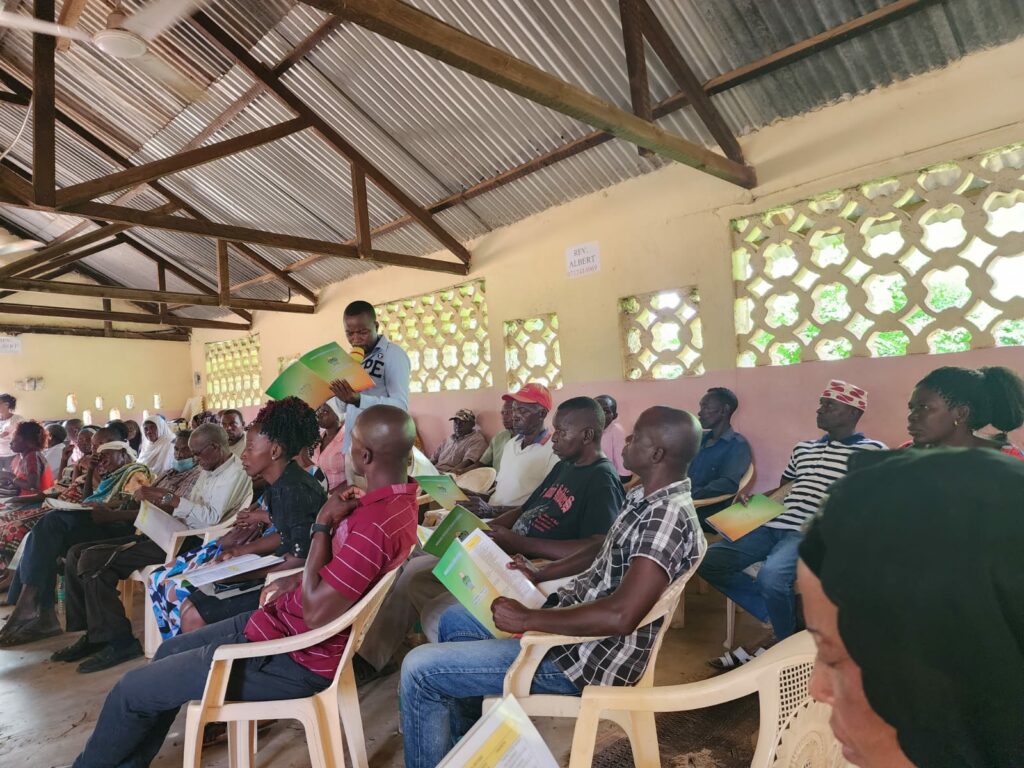
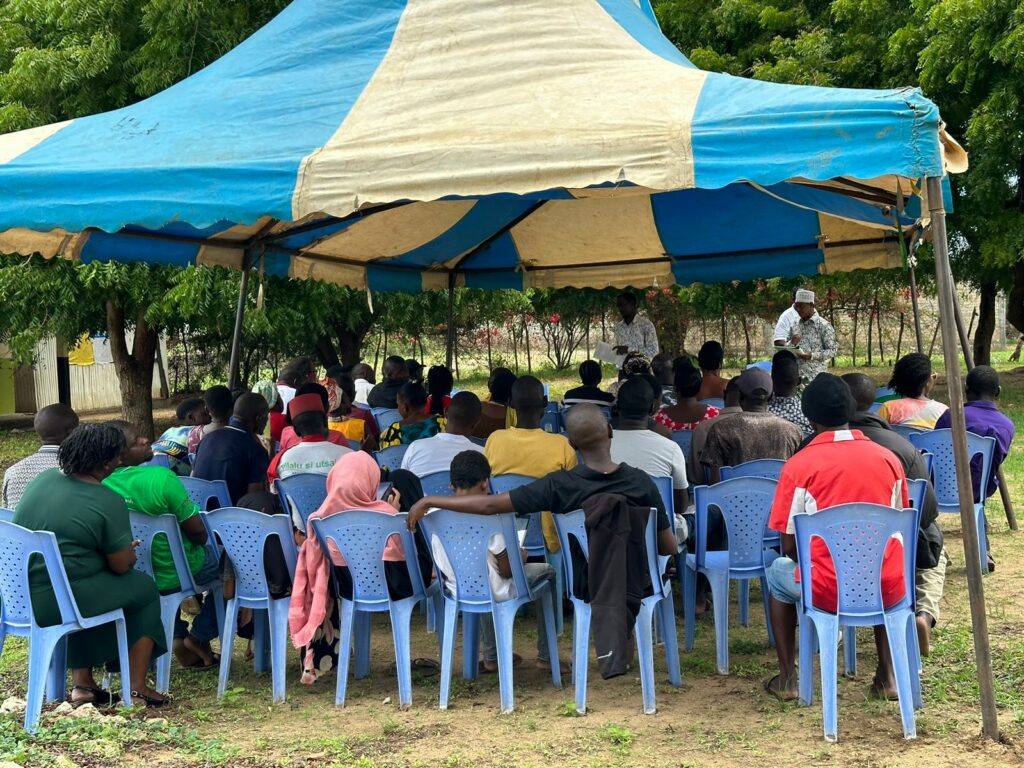

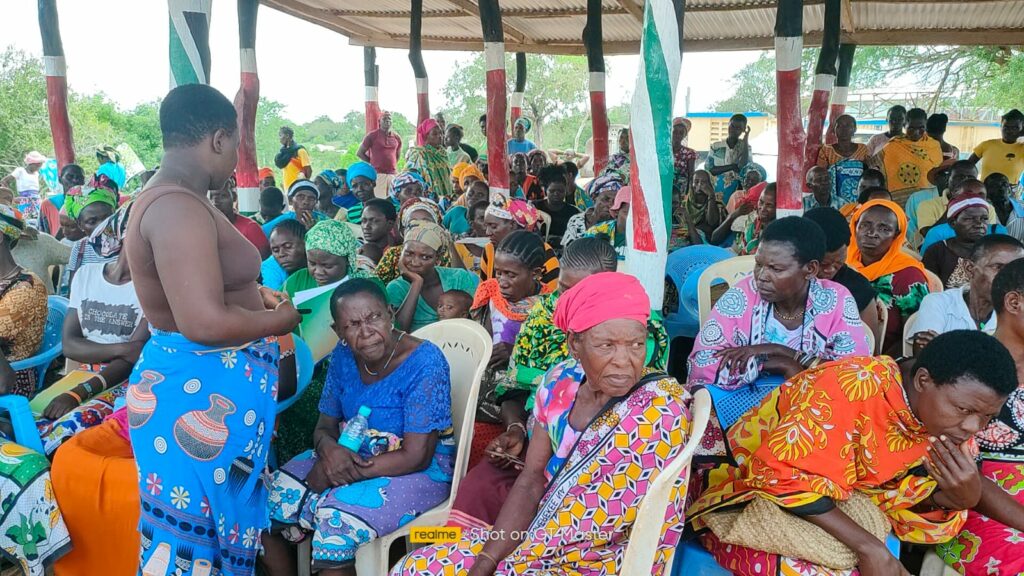
I can say our mobilisation worked. Even the other wards, people turned up. In Garashi for example, more than 500 people came to the meeting. I felt very happy to hear this, although a lot more people could have attended in some places.
The County needs to do better in mobilisation. It needs to make sure these documents are put up early in advance so that people can read without a hurry. It needs to work with CBOs to help tell people about such meetings. Nobody looks at their website. Nobody reads the newspaper so when they put the advertisements for meetings there nobody will see. Also, I noticed that there were two versions of the ADP – the one we analysed and another one that was brought on the day of the meeting. This created confusion because people thought even the content had changed and they complained that they had not read this new version.
I think also a lot of civic education is needed for people to understand things like the budget process. Many don’t attend such meetings because they don’t know what they are about. Some of them were airing out issues that were not supposed to be aired in a budget meeting.
I am so happy because of the work that we did. Seeing people collaborating like that on such a short notice is very encouraging. I am also very happy that we have a place like Maono where we meet and think of ideas like this one. I don’t think we would have managed to do it the way we did it without Maono’s facilitation. I look forward to working on more projects that help the people of Kilifi.

